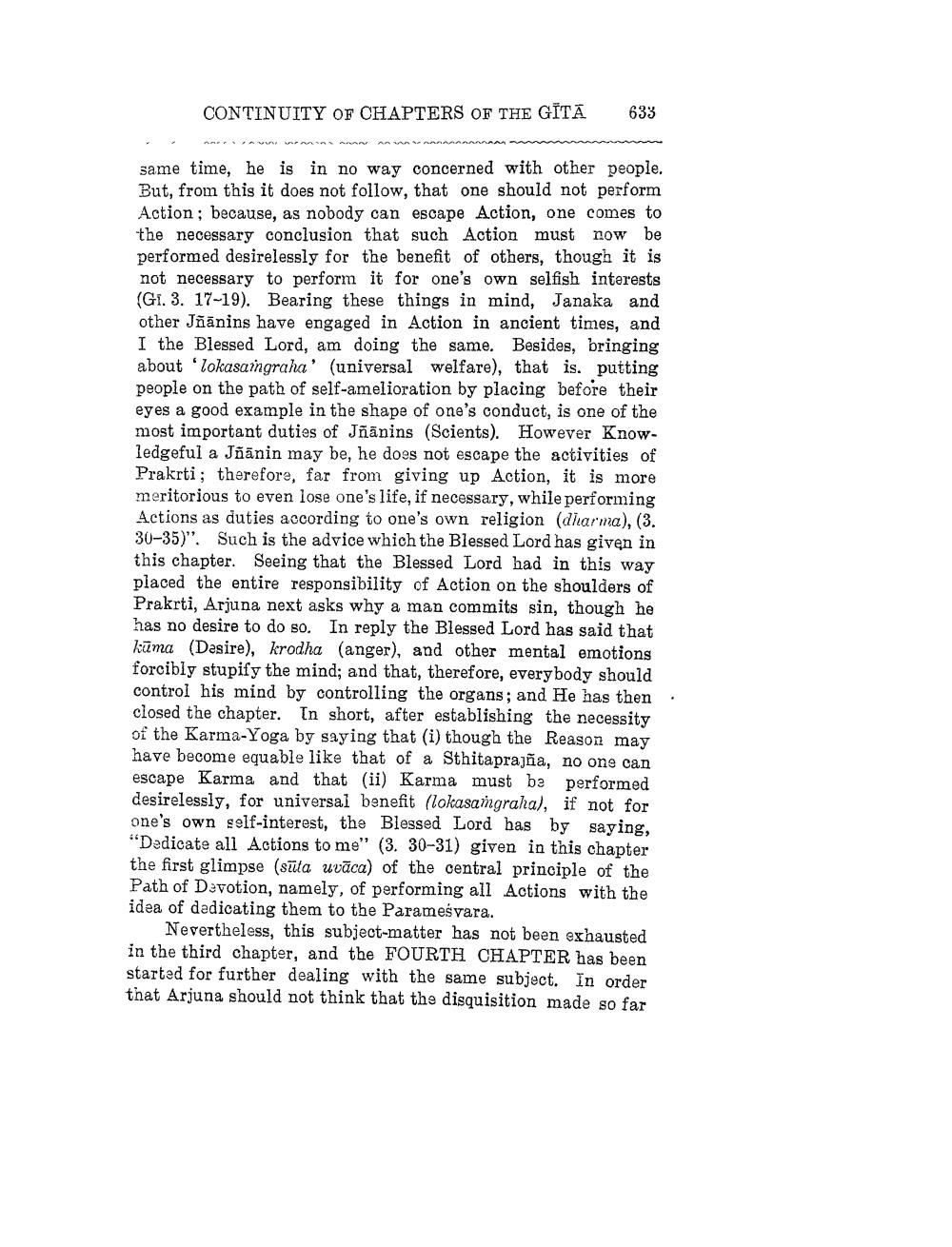________________
CONTINUITY OF CHAPTERS OF THE GĪTĀ
633
same time, he is in no way concerned with other people. But, from this it does not follow, that one should not perform Action; because, as nobody can escape Action, one comes to the necessary conclusion that such Action must now be performed desirelessly for the benefit of others, though it is not necessary to perform it for one's own selfish interests (GI. 3. 17-19). Bearing these things in mind, Janaka and other Jñānins have engaged in Action in ancient times, and I the Blessed Lord, am doing the same. Besides, bringing about 'lokasangraha' (universal welfare), that is. putting people on the path of self-amelioration by placing before their eyes a good example in the shape of one's conduct, is one of the most important duties of Jñanins (Scients). However Knowledgeful a Jñānin may be, he does not escape the activities of Prakrti; therefore, far from giving up Action, it is more meritorious to even lose one's life, if necessary, while performing Actions as duties according to one's own religion (dharma), (3. 30-35)". Such is the advice which the Blessed Lord has given in this chapter. Seeing that the Blessed Lord had in this way placed the entire responsibility of Action on the shoulders of Prakrti, Arjuna next asks why a man commits sin, though he has no desire to do so. In reply the Blessed Lord has said that kūma (Desire), krodha (anger), and other mental emotions forcibly stupify the mind; and that, therefore, everybody should control his mind by controlling the organs; and He has then. closed the chapter. In short, after establishing the necessity of the Karma-Yoga by saying that (i) though the Reason may have become equable like that of a Sthitaprajña, no one can escape Karma and that (ii) Karma must be performed desirelessly, for universal benefit (lokasangraha), if not for one's own self-interest, the Blessed Lord has by saying, "Dedicate all Actions to me" (3. 30-31) given in this chapter the first glimpse (sūta uvāca) of the central principle of the Path of Devotion, namely, of performing all Actions with the idea of dedicating them to the Paramešvara.
Nevertheless, this subject-matter has not been exhausted in the third chapter, and the FOURTH CHAPTER has been started for further dealing with the same subject. In order that Arjuna should not think that the disquisition made so far




